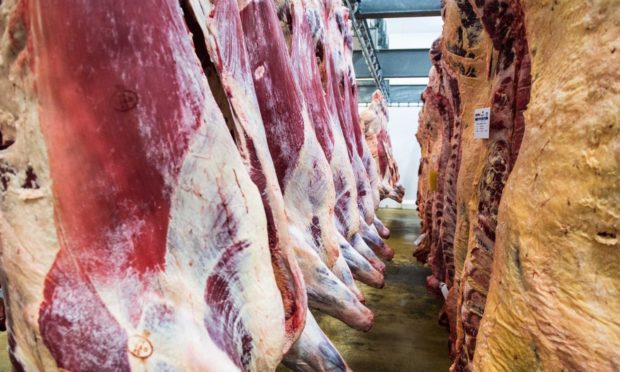Scotland’s meat wholesalers have welcomed the absence of manifesto proposals by any of the main political parties to cut livestock numbers as a “welcome boost” to the processing sector.
In an assessment of the merits of the political parties ahead of next week’s Scottish parliamentary elections, Scottish Association of Meat Wholesalers (SAMW) executive manager Martin Morgan said his sector had “feared the worst”.
“The national herd has stagnated for too long and the measures they intend to adopt to re-invigorate production to enhance the sector’s sustainability are worthy of all our support,” he concluded.
Focusing first on the SNP, Mr Moran said the highlights of their manifesto included the already well sign-posted gradual reform of farm support towards an outcome-based payments system and increased involvement from farmers in setting new policy frameworks and delivery structures.
He added: “They have pulled a couple of rabbits out of the hat, however, by promising a new Scottish food body, focusing on marketing and promotion, as well committing to setting up a single veterinary fields service agency.
“This caught my eye as SAMW has long advocated such a body. It would allow the creation of farm-to-fork inspection and a monitoring regime to supplement current quality assurance protocols.
“Streamlining the deployment of vets is long overdue with such a move helping to maximise their professional expertise and, importantly, take cost out of the current Food Standards Scotland delivery model which is hampered by inter-agency boundaries and differing priorities.”
Turning to the Scottish Conservatives, Mr Moran pointed out that until being usurped by the SNP in 2007, the rural vote was largely the preserve of the Tories.
He added: “In seeking to fight back, this year’s main farm feature is to produce (within 100 days of the election) a future agriculture policy blueprint. There are also plans for new support for young farmers and new entrants, efforts to boost demand for Scottish produce and a new National Food Strategy.”
In his assessment of the Greens manifesto, Mr Moran focused on the party’s pledge to revamp direct support for livestock farming, with qualifying conditions and targets for farmers to meet.
“There will also be compulsory farm audits, a new Food National Bill based on the health, social and environmental impacts of food, a strong focus on organic and local produce procurement by public bodies and a statutory ‘Right to Food Act’; all overseen by a Food Commission.” he said.
“Having helped the SNP push through legislation in the last Parliament, it’s not inconceivable that the Greens could again be the backroom power brokers after the election.”
Mr Moran highlighted the Scottish Liberal Democrats promise for a more rapid reform of the farm payments system than that proposed by the SNP.
“The Lib Dems will also introduce their own Good Food Nation bill to help the sector become more resilient through greater public procurement, supporting youngsters to get into farming and helping to reduce livestock emissions,” he said.
Turning to Scottish Labour, Mr Moran said the party had policies designed to attract rural dwellers and ensure farm payments support sustainable land use.
He added: “They will also offer clarity to farmers and crofters to maintain current funding until 2024, after which a new scheme will be created to address the climate crisis.”

